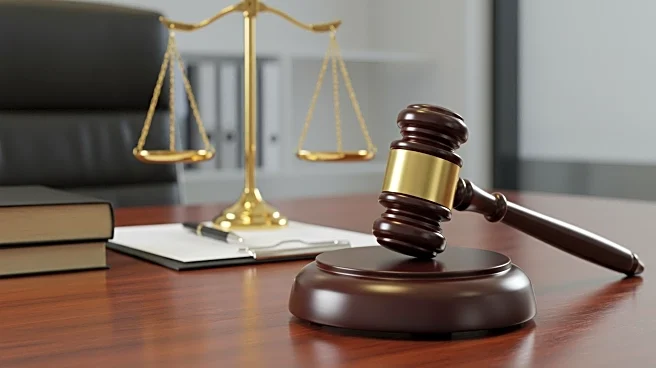What is the story about?
What's Happening?
Kari Lake, a former Trump administration official, has claimed the position of Acting CEO of the Voice of America (VOA), despite questions regarding her eligibility under U.S. law. Lake, who previously served as a senior advisor at the U.S. Agency for Global Media, has been involved in litigation concerning her authority to lead the agency. Her actions, including workforce reductions and program changes, have raised legal challenges. Lake's role has been contested due to the lack of Senate confirmation, which is typically required for such positions. The situation has led to broader legal implications about the validity of her decisions at VOA.
Why It's Important?
The controversy surrounding Kari Lake's appointment as Acting CEO of VOA highlights significant legal and ethical issues within federal appointments. If Lake's position is deemed unlawful, it could invalidate her decisions, affecting the agency's operations and its role in international broadcasting. This situation underscores the importance of adherence to legal protocols in government appointments, impacting the credibility and functionality of U.S. international media outlets. The case also reflects broader concerns about executive authority and the checks and balances within the U.S. government.
What's Next?
Legal proceedings are expected to continue as stakeholders challenge Lake's authority and the legality of her actions at VOA. The outcome could lead to changes in leadership and operational strategies at the agency. Additionally, the case may prompt discussions on reforming appointment processes to ensure compliance with federal laws. Stakeholders, including press advocacy groups and former officials, are likely to remain engaged in the legal battle, seeking clarity and resolution on the matter.
Beyond the Headlines
The situation with Kari Lake raises deeper questions about the politicization of federal agencies and the impact on press freedom. The restructuring of VOA under Lake's leadership could affect the agency's mission to provide reliable news in regions with limited press freedom. This case may also influence future debates on the role of government in media operations and the protection of journalistic integrity.


















